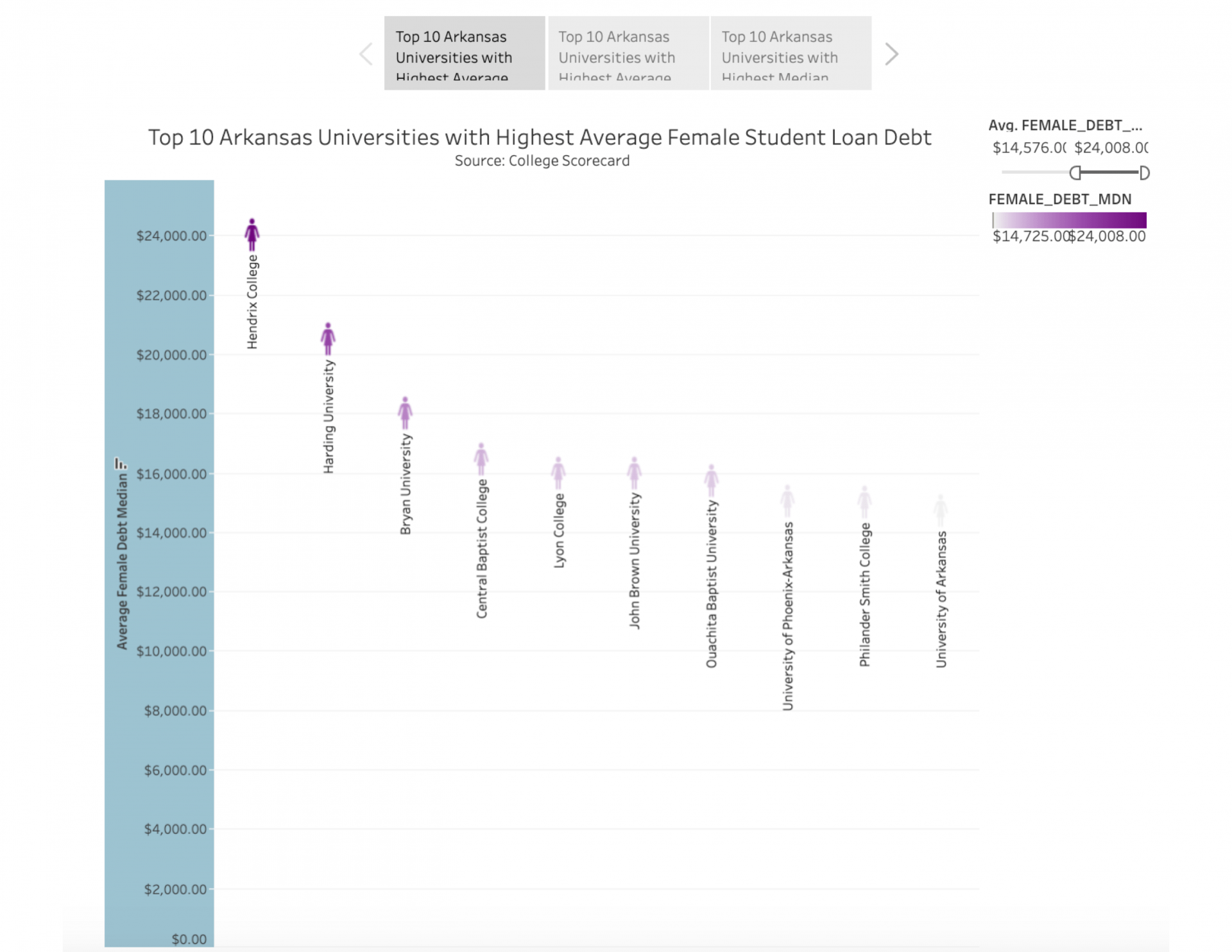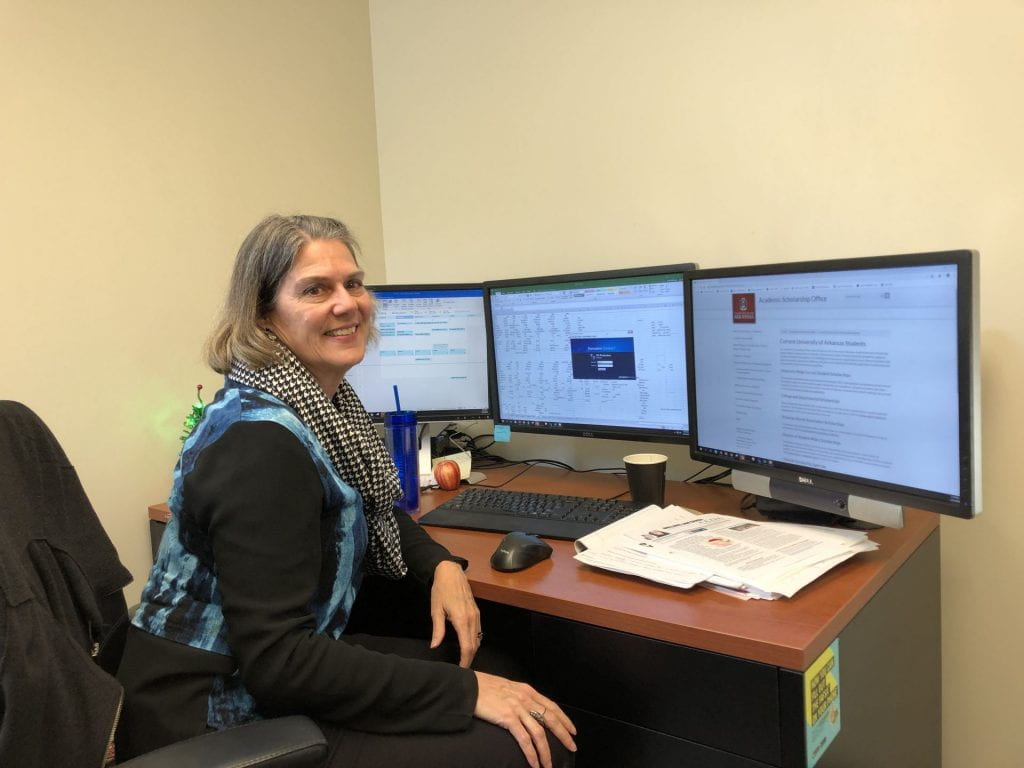Women face higher rates of student loan debt, studies find
By Coleman Bonner
The Razorback Reporter
According to the American Association of University Women, females graduating with a bachelor’s degree have an average cumulative debt of $21,619 as opposed to the $18,880 cumulative average for males. Females, on average, leave school with greater amounts of student loan debt than male graduates due to what experts say are institutionalized and cultural factors creating the debt disparities.
“Women now make up the majority of college students, though they continue to suffer from a lack of mentoring, subtle and explicit sexism, and implicit bias in many professions,” said Lisa Corrigan, associate professor of Communications and director of the Gender Studies Program at the UofA.
Corrigan said that while she took out loans to finance her education, she was well informed of the risks and what her borrowing cap should be, something she says is rare.

“The majority of owners don’t understand compounding interest or loan repayment,” Corrigan said.
A 2017 LendEDU study of 1,400 students found 50% of female students said their parents didn’t help pay for college in any way, while 43% of their male students had no financial support from their parents. The survey found 6% of females have the entirety of their school paid for by parents, but 10% of the males were similarly lucky.

“I think some people are going into it with an imperative to go to school and take it all out in loans without really thinking long-term,” said Alice Shattuck II, fiscal support manger for the Associate Vice Chancellors Office. “I definitely think people are unaware of what they’re signing up for and I definitely think people are not making a good cost and benefit decision before they take out these loans.”
Denise Burford, associate director of financial aid for the UofA, said that , depending on the major and individual seeking the loan, the risks of student loans can often outweigh the potential benefits of a degree.
“Drive is more important than anything,” said Burford. “We’ve bought into the idea that were going to earn more just because we have a college degree and while it’s true for most, it’s not true for everybody.”
Corrigan agreed. “It depends on the degree and the amount of student loans,” Corrigan said. “It also depends on the student’s family and their generational wealth. There is no one-size-fits-all answer because not all students can bear the same debt load.”

While college degrees certainly are helpful and often essential in certain career paths, there are some that are objectively more valuable than others. These majors, like engineering for example, have higher starting salaries than others and are often male-dominated. These factors contribute to the differences in debt between genders. For example, elementary education, which has a median yearly income of $35,800, has a workforce that is 88% female. Electrical engineering has a median yearly income of $78,500 but 91% of graduates in this field are male, according to a study posted by PayScale.

Though these high-paying career fields are more likely to be male dominated, women within these fields are still making less than their male counterparts. According to the same PayScale study, the starting salary of a woman in an electrical engineering job will be $1,500 less on average than her male counterpart. Furthermore, men in elementary education make $3,100 more in starting salary on average than females.
“They are hired into the same jobs as men and make, on average, less money for the same labor,” said Corrigan. “Women in Arkansas are less likely than men to be in the labor force and more likely to live in poverty and only about 20% of women in Arkansas hold a bachelor’s degree or higher.”
